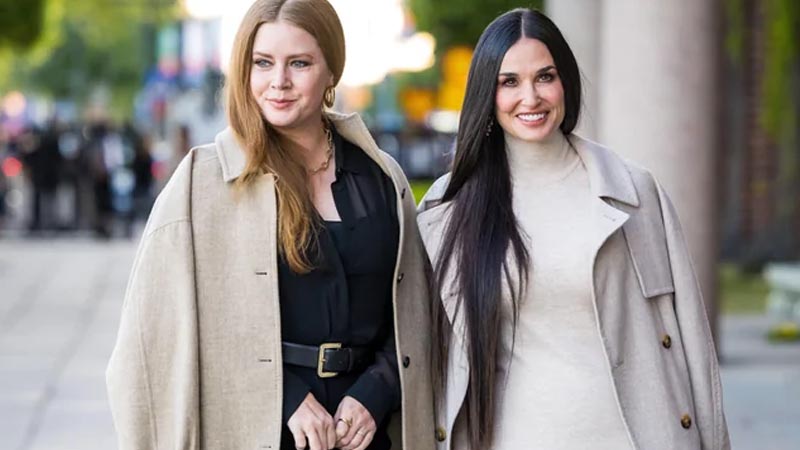In a candid discussion during a recent Variety’s Actors on Actors series, actresses Amy Adams and Demi Moore shared insights on the language they use when speaking to their daughters, particularly when it comes to praise.
Adams, who is the mother of 14-year-old daughter Aviana, explained that she consciously avoids using gendered language, like calling her daughter a “good girl,” in favor of more gender-neutral terms. “You’ve raised daughters, and I’ve had to really work on being like, ‘Oh my gosh, you’re such a good… No, don’t say it.
You’re such a good person, and I’m really proud of you,'” Adams said, referring to the effort she makes to avoid labeling her daughter in a way that could feel limiting. Moore, who has three daughters—Rumer, 36, Scout, 33, and Tallulah, 30—added to the conversation, finishing Adams’s thought by saying, “You’re a good girl,” and emphasizing how important it is for them to avoid those terms, recognizing how ingrained such phrases can be in society.
Adams elaborated, explaining the deeper significance of this shift in language. “Because there was something about that that I recognized I was paralyzed by for parts of my life,” she reflected, discussing how these labels could have long-lasting effects on women.

She continued, recalling an influential moment when she realized the importance of reframing these labels: “I remember watching you and thinking, ‘That’s what it is to be a woman.‘” The conversation then shifted to broader societal issues, where both actresses discussed the double standards women face, particularly when it comes to expressing anger.
Moore, known for her role in Substance, said, “Women in general, there is a sense of it not being okay to be angry.” She added, “Not that anybody’s saying we can’t be, but that it’s been in a way the collective consciousness of like, ‘Oh, that’s not attractive.'”
This exchange between Adams and Moore sheds light on how language and societal expectations can shape the way women see themselves, and how they are seen by others.

